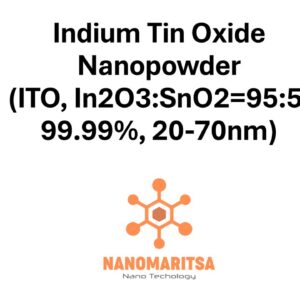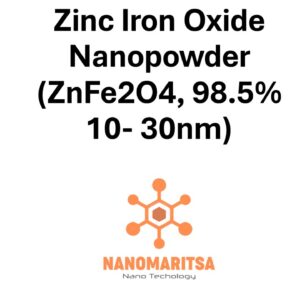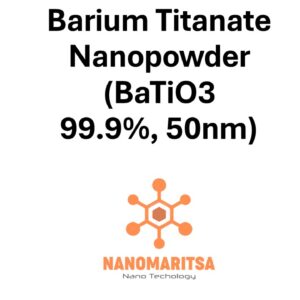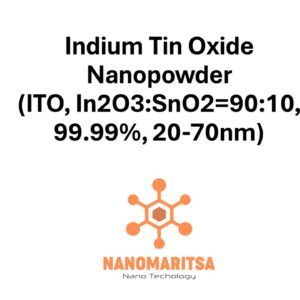Precipitated calcium carbonate (PCC) nanopowder is an ultrafine material produced by controlled chemical precipitation methods. With a purity of 98% and a particle size smaller than 50 nm, PCC offers exceptional brightness, fine particle distribution, and excellent dispersion, making it highly valuable in industries such as paper, plastics, paints, and pharmaceuticals.
Composition and Structure
CaCO₃ (Calcium Carbonate): Calcium carbonate is an abundant mineral formed by the combination of calcium, carbon, and oxygen. In its precipitated nanoscale form, it exhibits enhanced surface area and reactivity compared to natural ground calcium carbonate.
Purity (98%): The 98% purity ensures minimal impurities, providing consistent properties in applications demanding high-performance fillers or additives.
Particle Size (<50 nm): The ultrafine particle size results in a large surface area, improving optical, mechanical, and rheological properties in end-use applications.
Properties
High Brightness and Opacity: PCC nanopowder enhances whiteness and opacity in paper, coatings, and plastics, contributing to improved aesthetics and coverage.
Controlled Particle Morphology: Precipitation methods allow fine-tuning of shape and size, enabling customization for specific performance requirements.
Dispersibility: The nanometric scale provides a high surface area that aids in uniform dispersion within composites, formulations, and coatings.
Thermal Stability: Calcium carbonate remains stable under moderate heat, retaining its structural integrity in many industrial processes.
Biocompatibility: PCC is generally recognized as safe (GRAS), making it suitable for use in pharmaceuticals, food, and personal care products.
Applications
Paper and Packaging: PCC nanopowder is used as a filler and coating pigment in paper to improve brightness, smoothness, and print quality, while reducing production costs.
Plastics and Polymers: As a reinforcing filler in polymers, PCC enhances rigidity, impact strength, and dimensional stability in plastics and elastomers.
Adhesives and Sealants: PCC improves rheology, setting behavior, and mechanical properties of adhesives and sealants, contributing to more durable bonds and seal integrity.
Paints and Coatings: The high brightness and fine particle size of PCC enhance opacity, gloss, and coverage in paints, reducing the need for more expensive pigments.
Pharmaceuticals and Food: PCC nanopowder is used as a calcium supplement, anticaking agent, and pH regulator in pharmaceutical tablets, nutritional products, and food formulations.
Recent Advancements and Research Contributions
University of Cambridge, UK: Researchers are examining PCC nanopowder in sustainable packaging applications to reduce plastic usage and enhance recyclability.
Tsinghua University, China: Focused on modifying PCC surfaces to improve compatibility with biopolymers for eco-friendly composites.
National University of Singapore (NUS): Investigating PCC for advanced biomedical uses, including drug delivery systems and tissue engineering scaffolds.
Massachusetts Institute of Technology (MIT), USA: Developing functionalized PCC with enhanced dispersibility and improved thermal properties for novel coatings and adhesives.
Recent Developments
- Eco-Friendly Production: Efforts are underway to create PCC using environmentally responsible methods, reducing carbon emissions and energy consumption.
- Surface Modification: Advanced surface treatments are improving the compatibility of PCC with various polymer matrices, enhancing mechanical and thermal performance.
- Hybrid Nanocomposites: PCC is being combined with other nanomaterials to achieve multifunctional properties, including flame retardancy, antimicrobial activity, and improved barrier performance.
Future Prospects
Precipitated calcium carbonate nanopowder (CaCO₃, <50 nm, 98%) is poised to play a significant role in driving innovation across industries. As research progresses, PCC nanopowder is expected to:
- Enable more sustainable packaging and biodegradable plastics.
- Enhance the performance of paints, coatings, and adhesives through controlled morphology and improved dispersion.
- Advance applications in pharmaceuticals, food, and personal care products due to its biocompatibility and functional benefits.
With its fine-tuned properties and adaptability, PCC nanopowder continues to shape the future of materials science, offering cost-effective, high-performance solutions for a wide range of modern industrial applications.
| Measurement (gr) | 100 grams, 500 grams, 1000 grams |
|---|






